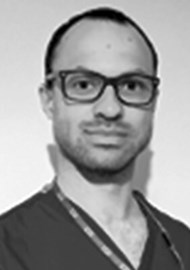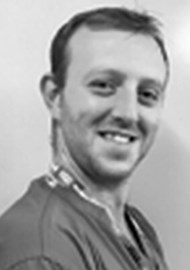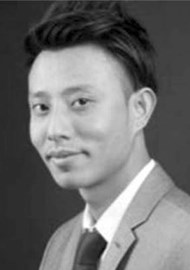“How very little can be done under the spirit of fear.”
Florence Nightingale
Since 31 December 2019 when a cluster of pneumonia cases with an unknown cause were first referred to the WHO Country Office in China, there has been little else in the news. The WHO declared Hubei a Public Health Emergency of International Concern on 30 January 2020.
The term COVID-19 was used on 11 February 2020, a disease caused by Severe Acute Respiratory Syndrome Coronavirus 2 (SARS-CoV-2). On 11 March 2020 the WHO characterised the outbreak as a pandemic with Europe the new epicentre.
At the time of publication there are more than 2.5 million cases worldwide with at least 178,000 deaths. The number of cases per population varies across regions within the UK, with London currently being the most affected. Public Health England has issued protocols on personal protective equipment (PPE), but there is variation across NHS trusts.
The BAUS and EAU have produced guidelines on managing mainly cancer patients during the current outbreak. Elective surgeries, flexible cystoscopy and face-to-face consultations have been cancelled and postponed to minimise spread and to free up anaesthetists, nursing staff, ventilators, PPE and beds to combat the pandemic. Unfortunately, a delay in cancer surgery or chemotherapy is likely to impact cancer prognosis and survival, and cause patient anxiety. The first of several NHS Nightingale hospitals opened on 3 April to accommodate the influx of COVID-19 patients.
Workplans have changed and redeployment has occurred in most, if not all, UK hospitals. Retired doctors and nurses have returned to the NHS, those who are out of programme doing PhD research have had to stop due to university and lab closures and have returned to full-time clinical practice. Specialist trainees have been asked to act both up and down to help cover for staff shortages as foundation doctors and core trainees have been redeployed to cover medical / COVID-19 wards. Local training has been arranged to refresh life support and respiratory skills in the wake of changing guidelines to resuscitation of patients suspected or confirmed as having COVID-19. Some urology departments in the UK have merged with other surgical specialties and urology trainees have been put on a pan-surgical on-call rota looking after both surgical and COVID-19 patients.
In our department, I have just been redeployed to the ICU rota. Our senior house officer has been redeployed to ‘Medicine’, with the trainee registrar left holding the bleep with the consultants (of which two are stuck in isolation). We have moved almost entirely to teleclinics and have virtual clinics available. We took the step of calling patients before investigations are requested and discussing the option of breaking bad news over the phone. On the whole, the vast majority of patients have been understanding and supportive of the measures taken.
With regards to training, the Royal College of Surgeons have cancelled all surgical courses and exams, and trainees may require an extension to their CCT date. The recent April hospital rotation was cancelled, while local and overseas fellowships and the annual BAUS conference have been postponed. Annual Reviews of Competency Progression (ARCPs) are to be performed online, however there is limited scope for work-based assessments to furnish logbooks, to participate in mandatory courses and attend examinations. This has been taken into account and a ‘COVID-19’ outcome has been introduced.
There are also ongoing concerns regarding recruitment. Face-to-face interviews for ST3 have been cancelled. The JCST have explained that ST3 urology candidates will be ranked purely on their self-assessment scores, with no submission of evidence. This may be an advantage for the over-confident but this has disappointed many who were expecting to score well on the other four stations at interview.
Interestingly, we have not seen as many pyelonephritis presentations over the last few weeks. No ‘complex’ urinary tract infections or other ambiguous abdominal pains that come to nothing on investigation then settle without explanation. Consequently, we have not seen a sudden influx of severe urosepsis or pyonephrosis to suggest these patients are slowly deteriorating at home.
There has been a far more sinister outcome for some of the testicular pain patients. In the last three weeks we have seen three patients with dead testes. Unfortunately, they presented late with testicular pain as they were reluctant to attend hospital amidst the threat of contracting COVID-19 in accordance to Government advice.
The full impact that COVID-19 has had on the day to day function of our urology department is currently unclear. What can be said with some certainty is that the threat of the virus is responsible for delayed presentation of acute testicular pain and there is a definite reduction in the presentation of ‘acute’ patients. Delayed diagnosis of urinary tract malignancies is unavoidable at this stage with our investigation resources limited by the outbreak of the virus. The reduction of training opportunities available will likely have a detrimental effect on our future development as clinicians, with less time in theatre and less exposure to acute patients. Courses and conferences essential to our career progression have been cancelled or postponed. Colleagues are learning new skills and adapting to new settings such as ICU and the use of CPAP / NIV just to cope with the influx of patients. Our junior colleagues, keen to progress in their surgical careers, are drafted to medical wards away from their preferred knowledge areas and skill sets. Our department and our healthcare system as a whole will take a long time to recover from the disruption caused by the pandemic. In the end the loss of life directly or indirectly from the virus will be hard to determine but is unfortunately unavoidable.






